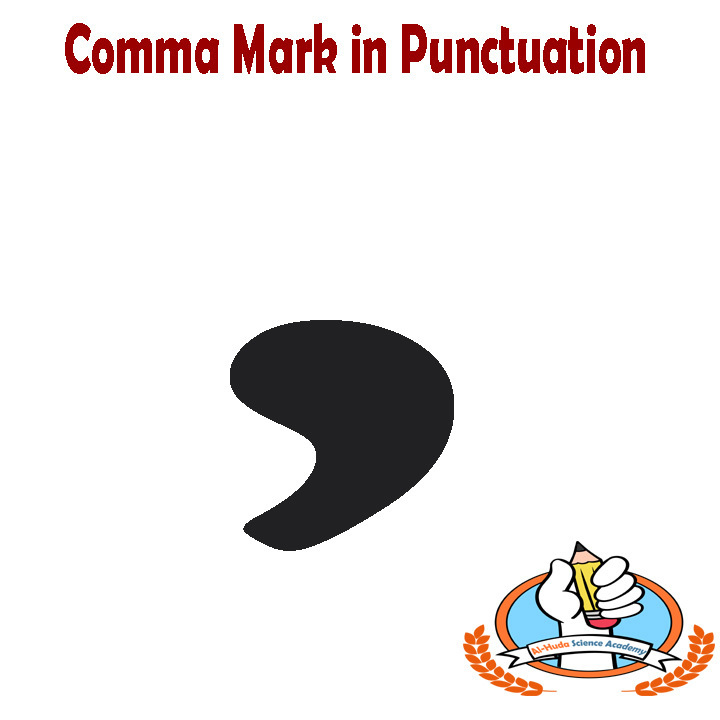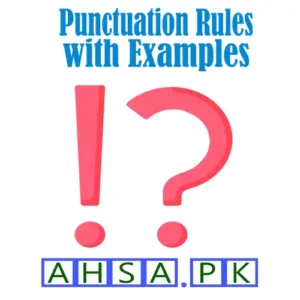Comma mark is used to separate different parts of a sentence.
Representation
The symbol used for comma is ‘,’.
More Use of Comma Mark
a) It is used to separate different parts of a sentence e.g.,
His younger son is, by and large, a very decent young boy.
b) Before a reported speech e.g.,
He said, “I am going to school”.
c) After the dependent clause when it comes before the main clause e.g.,
If he comes, I will help him. (Dependent)
When he comes, I will help him. (Dependent)
Because he is ill, he cannot come. (Dependent)
Note: If the main clause comes first then comma will be omitted.
I will help him if he comes. (Main clause)
I will help him when he comes. (Main clause)
He cannot come because he is ill. (Main clause)
d) Used to separate list of nouns, pronouns, verbs and adjectives e.g.,
There are chairs, tables, sofa sets, fans and beds in the room. (Nouns)
You, he and I were going. (Pronouns)
He danced, laughed and played. (Verbs)
He is sober, kind, intelligent and honest. (Adjectives)
e) Used after the name of a person spoken to or after the word which is used to address the person e.g.,
Ali, come here.
f) Used to separate the words or sentences which gives explanation of each other. (OR) Before or after explanatory phrases. e.g.,
Iqbal, the greatest poet of Pakistan, was born in Sialkot.
Arfa, the daughter of Osama, is a good girl.
g) Used in various parts of address and date. e.g.,
10 Market, Plaza, Road, City, Pakistan.
May 01, 2020
h) Used after salutation and closing phrases. e.g.,
Dear Sir,
Yours Truely,
i) Used to separate such introductory words (such as Yes, No, Thank you, Naturally, therefore, indeed, on the whole, ofcourse, well, consequently, Atlast, Moreover, Accordingly,) from the rest of the sentences. e.g.,
Atlast, Aamir went.
Note: If these words come in the mid of the sentence then coma will be put before and after these words. e.g.,
Aamir, atlast, went.
j) Used to indicate the emission and avoid the repetition of a verb. e.g.,
I went to Paris, he, to London.
k) Used before the conjunction(and, but, for, or, yet, nor) when they join clauses of a compound sentence. e.g.,
We were given a very warm welcome, and were delighted.
Note: In place of comma, semi-colon may also be used. e.g.,
We went to see him at the address; he had given us; but no one there had ever heard of a person of that name.
He would never agree to this; for he is an honest man.




